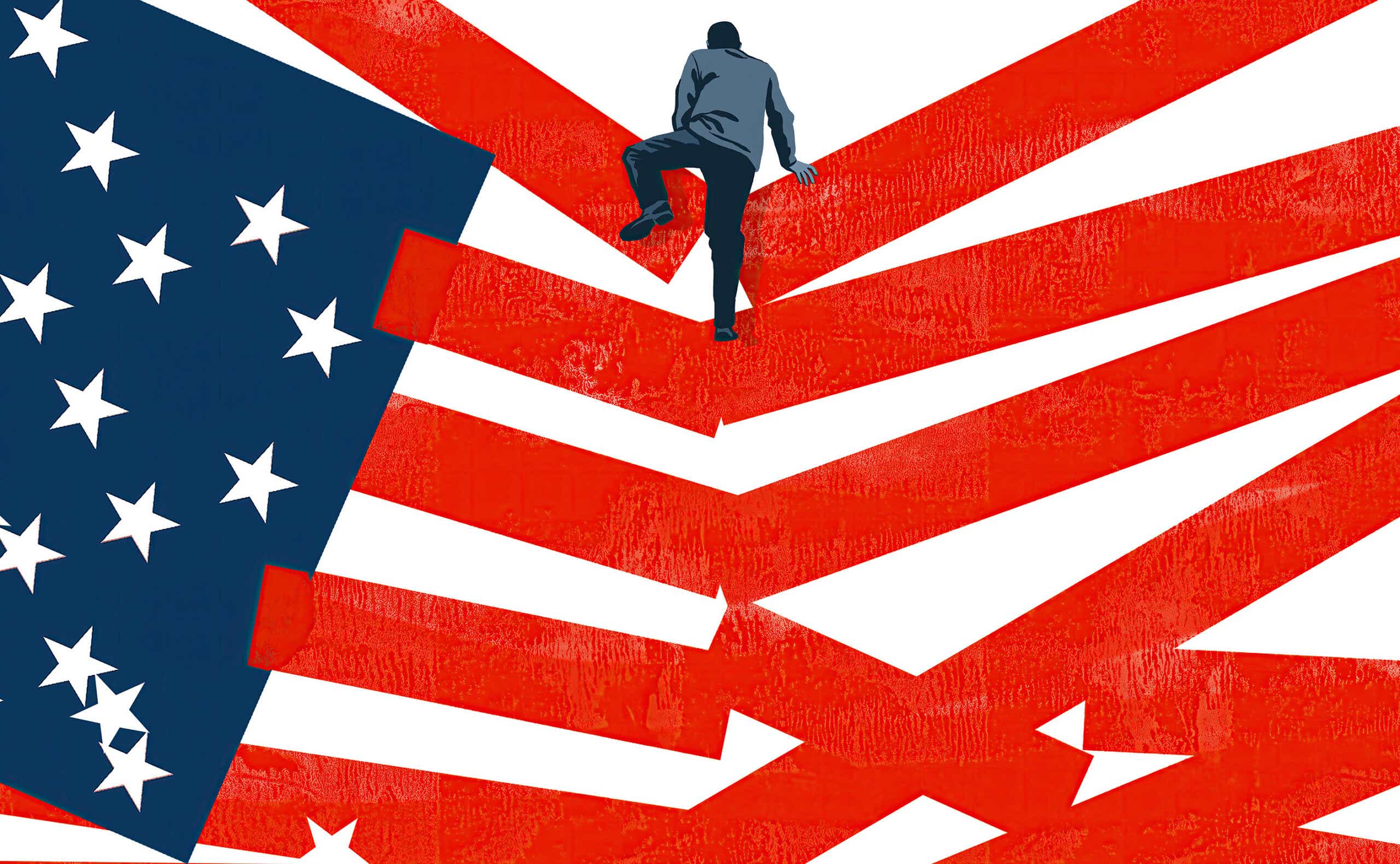In today's fraught political climate, it's not surprising that many Americans are worried about threats surrounding the election, especially given that the last one prompted the deadly Jan. 6, 2021, insurrection. According to a new University of Massachusetts Amherst poll, 71 percent of Republicans and Democrats said they were either somewhat or very concerned about violence surrounding Nov. 5 as people head to the polls.
These fears are well-founded: There have been multiple warnings from government officials. In late September, the Department of Homeland Security (DHS) issued a bulletin that domestic extremists are trying to disrupt the Democratic process ahead of November's election. "Some social media users are discussing and encouraging various methods of sabotaging ballot drop boxes and avoiding detection, likely heightening the potential for targeting of this election infrastructure through the 2024 election cycle," it read.
The warning came on the same day that ballot boxes were set on fire in Portland, Oregon, and Vancouver, Washington, destroying hundreds of ballots. While that case remains ongoing, authorities arrested a 35-year-old man in connection to a similar incident in Phoenix, Arizona, though he denied having any political motivation for his actions.
To better understand this troubling trend (and attempt to ease your nerves a bit), we turned to political extremism experts for some perspective.
"Era of political violence"
Political violence has been increasing in the U.S. — from the 10-fold surge in threats against members of Congress in the past decade to the two assassination attempts of Donald Trump. And there have continued to be more incidents as the election nears, including the three shootings in recent weeks at a Democratic campaign office for Vice President Kamala Harris in Arizona.
This uptick in political violence has remained notably consistent since 2016, when Trump made his first presidential run. In 2021, there were 93 cases of political violence (including the Jan. 6 insurrection), followed by 79 in 2022, and 76 in 2023, according to Reuters. These incidents have emanated from those across the political spectrum, ranging from election disputes to LGBTQ+ rights and the Israeli-Palestinian conflict. However, this number could be much higher as no official government data on political violence exists. It's tracked mainly by universities, private groups, and news organizations like Reuters.
This marks the most sustained spate of political violence in the U.S. since the 1960s, according to University of Chicago professor Robert Pape, who has studied political violence for more than 30 years. But he predicts this "era of political violence" has yet to hit a tipping point.
What's driving this increase in political violence?
History has proved that violence can arise from the left, right, or any other political position for that matter. But political extremist experts say the pendulum has swung to the right in recent years.
"We've certainly seen mainstream acceptance of political violence on both the left and the right," says Jon Lewis, a research fellow at the Program on Extremism at George Washington University. "But when you look at the documented threats to election workers, politicians, judges, and the LGBTQ community, these are predominantly coming out of right-wing spaces."
Trump, in particular, often uses incendiary rhetoric to rile up his right-wing base, threatening to use the Department of Justice and the military to go after his political opponents, calling them "the enemy within."
Our experts agree that the former president is both a cause and a symptom of this rise in violence in part because his incendiary rhetoric has helped normalize violence, which has now become more mainstream. A 2023 study from the University of Chicago's Project on Security and Threats estimates that some 12 million Americans think violence is justified to restore Trump to power.
If this data has you down, you'll be relieved to learn you're not alone: A vast majority of Americans (79 percent) — regardless of their political affiliation — don't believe violence is the answer to solving the divisions within the U.S., according to a PBS NewsHour/NPR/Marist poll conducted in April.
What can we do to push back against political violence?
Our political scientists agree that it's key for government leaders to stand in solidarity against all political violence.
"One of the most important things that could be done is if governors in swing states could make a joint video condemning violence wherever it would come from, and do that now, and not simply wait until a violent event happens," says Pape.
But you don't have to be an elected official to take a stand, especially regarding disinformation. "If disinformation comes into your community, offer to check the source because staying informed is a critical part of combating the false information that can drive threats or harassment around election season," says Shannon Hiller, executive director at Princeton University's Bridging Divides Initiative.
While the current political climate is tense, Hiller emphasizes that voters shouldn't be afraid to vote, pointing to recent efforts to train poll workers and election officials on the ground. The Justice Department has already deployed members of its Elections Threats Task Force, created by Attorney General Merrick Garland in 2021, to states nationwide to ensure polling places are safe and free from threats and intimidation.
Hiller says, "Voting and elections in the U.S. still remain overwhelmingly safe and secure."









